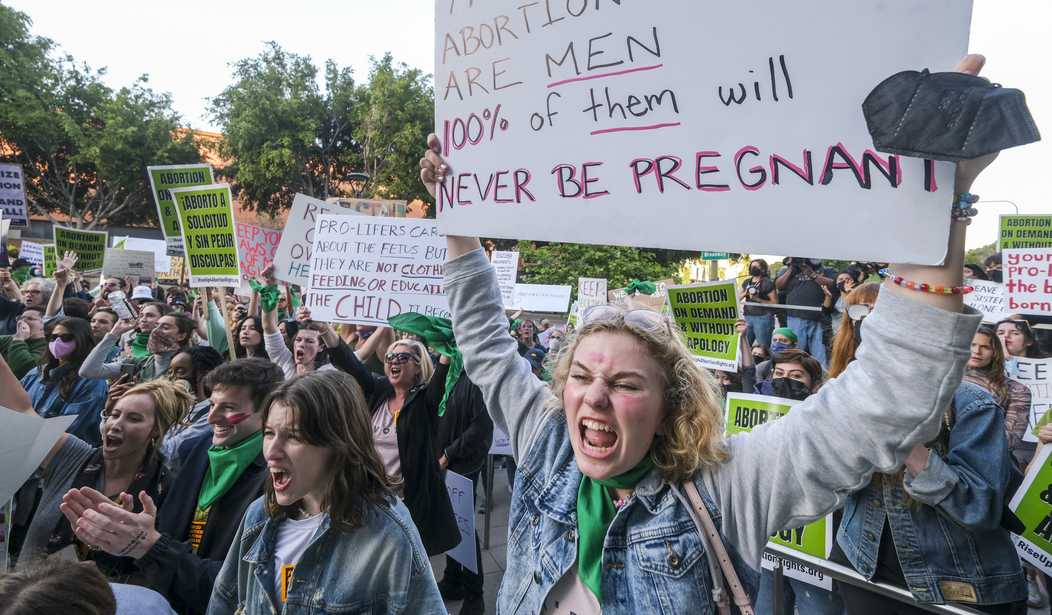Short answer: Uh….
I’m not sure there is a short answer to this one. How about “not really, but sort of”?
The inspiration for this post is a new poll from Echelon Insights that’s making the rounds tonight for two reasons. One is that it shows a surprisingly large lead for Dems on the generic ballot among registered voters, which is out of step with most other public polling. The other is that Echelon is a firm run by two conservatives, Patrick Ruffini and Kristen Soltis Anderson. This isn’t some hack poll pushed by the DNC to boost grassroots morale. This is a legit survey conducted by Republicans.
Dems by … seven?
If the election for Congress were held today and you had to make a choice, for whom would you vote? pic.twitter.com/mgifW2foDo
— Echelon Insights (@EchelonInsights) July 20, 2022
Marist also found Democrats up seven in a generic ballot poll taken in June but that was a small blue island in a red ocean of surveys showing the GOP ahead. On the other hand, follow the last link to RCP and you’ll find that the last three national polls taken have each had the Dems, not the GOP, ahead in the race for Congress. Morning Consult has them up four this week, YouGov has them up three, and even today’s armageddon poll from Quinnipiac had them up by a point. That result continues to gnaw at me hours later. How can it be that Biden is sitting at 33 percent approval among registered voters while his party leads on the generic ballot? No electorate “decouples” that much.
We need to bear a few things in mind. First is that in a “neutral” election cycle Democrats typically lead comfortably in generic ballot polling of registered voters (e.g., five or six points), an advantage that’s often erased by GOP turnout on Election Day. A one-point lead for Dems in polling this year doesn’t mean they’re going to defy all expectations and pick up seats in the House this fall, in other words. It means there’s likely to be a red wave, just maybe not the red tsunami Republicans are hoping for.
Another point to note is that the recent data from Morning Consult and YouGov showing Dems ahead doesn’t show them improving over time. In the last polls conducted by those two firms earlier this month, Democrats led by the same margins in each as they do now. They may have gained a bit in the immediate aftermath of Roe being overturned but there’s no evidence in those polls that they’re currently still gaining.
Lastly, Echelon’s generic ballot polling over the last few months has been consistently better for Democrats than most other pollsters’ has. In the RCP average, Republicans have led every single day since last November. In Echelon’s surveys, the story is different:
Democrats sit at +4 among the likely electorate. Republicans have taken a hit since June. pic.twitter.com/HC1yFqCpeM
— Echelon Insights (@EchelonInsights) July 20, 2022
Only once since November have they had Republicans ahead. For whatever reason, Ruffini and Anderson are expecting a somewhat bluer electorate this fall than most others in their field are.
Put all of that together and you get “not really, but sort of.” Not really: Apart from Echelon and Quinnipiac, Dems have been stagnant on the generic ballot these past few weeks and in some polls trail the GOP by garish, apocalyptic margins. (Rasmussen and InsiderAdvantage each have Republicans up eight points and Trafalgar has them up nine.) But sort of: Republicans led by an average of 3.5 points as recently as June 11 but have now seen their lead cut almost in half, to 1.8 points. There probably *is* a “Roe effect” that’s chipped a point or two off of the GOP’s advantage. It’s just not the sort of gamechanger Democrats were hoping for.
Meanwhile, states with Republicans in charge are quite happy with their leadership. Enlarge this image from Morning Consult and you’ll find that the eight governors with the highest approval ratings (and 13 of the top 15) are GOPers.
Who is America's most popular governor? With 74% approval ratings, Wyoming Republican Mark Gordon and Vermont Republican Phil Scott top the list. https://t.co/ScFFj3iV86 pic.twitter.com/GHMUUtroQJ
— Morning Consult (@MorningConsult) July 19, 2022
The top eight are an interesting mix of moderates elected in blue states (Scott, Baker, Hogan) and conservatives elected in deep red states (Gordon, Noem, Justice). Glenn Youngkin is currently +18 in a state Biden won by 10 points and Ron DeSantis has nearly the same rating governing a purple state as Gavin Newsom has governing one that’s solidly in favor of his party. All of that augurs well for swing voters rolling the dice on Republican candidates this fall. Although there’s also an unmistakable lesson here in taking care to nominate candidates who are a good fit ideologically for their state rather than a wild mismatch. You would think Republicans in Hogan’s state would understand that better than anyone, having twice seen him elected in a state where the GOP has no business winning. You would be wrong.








Join the conversation as a VIP Member